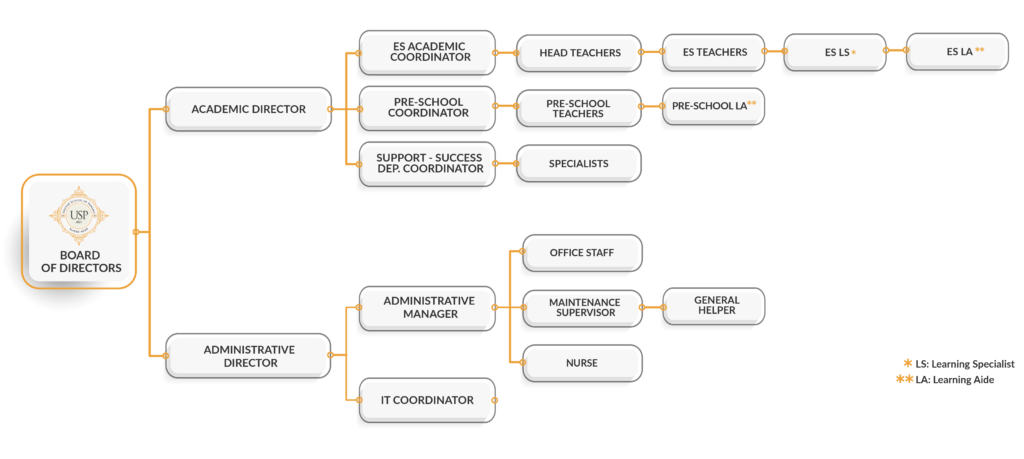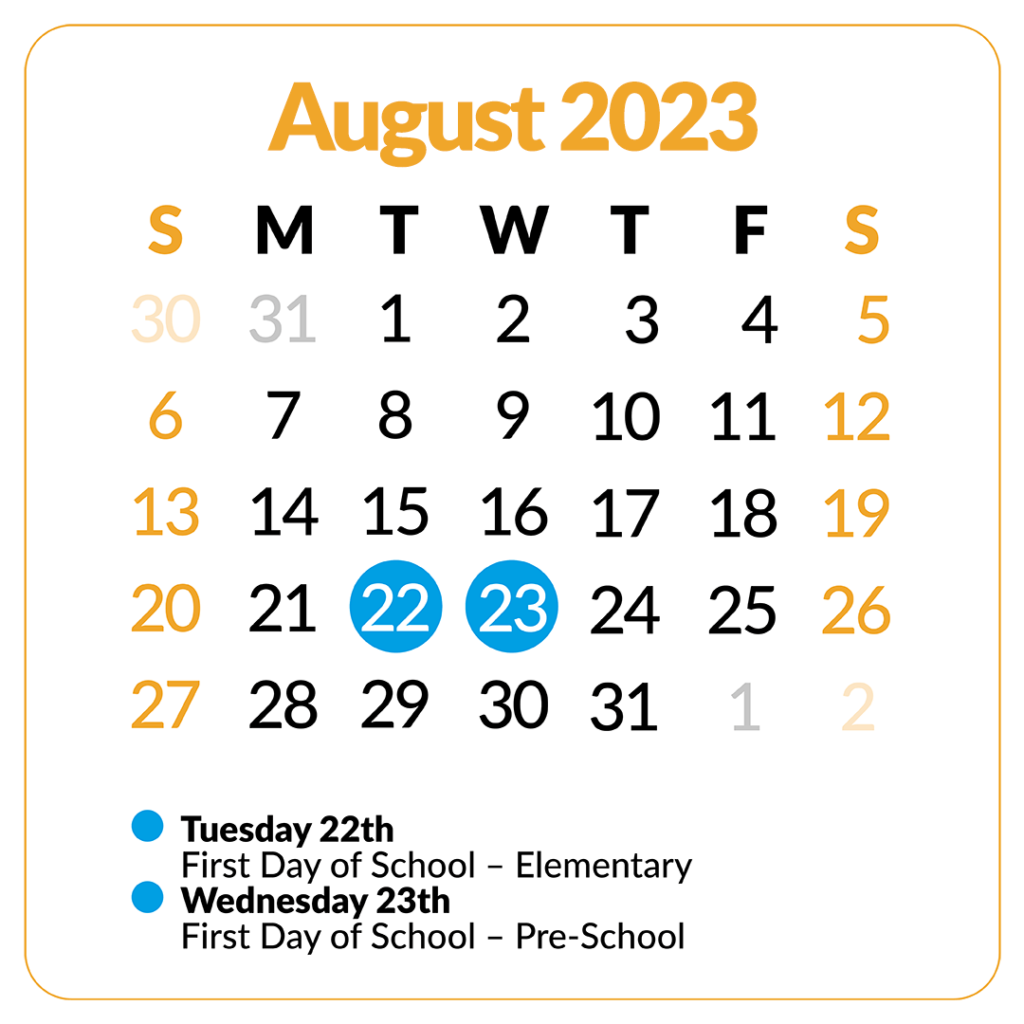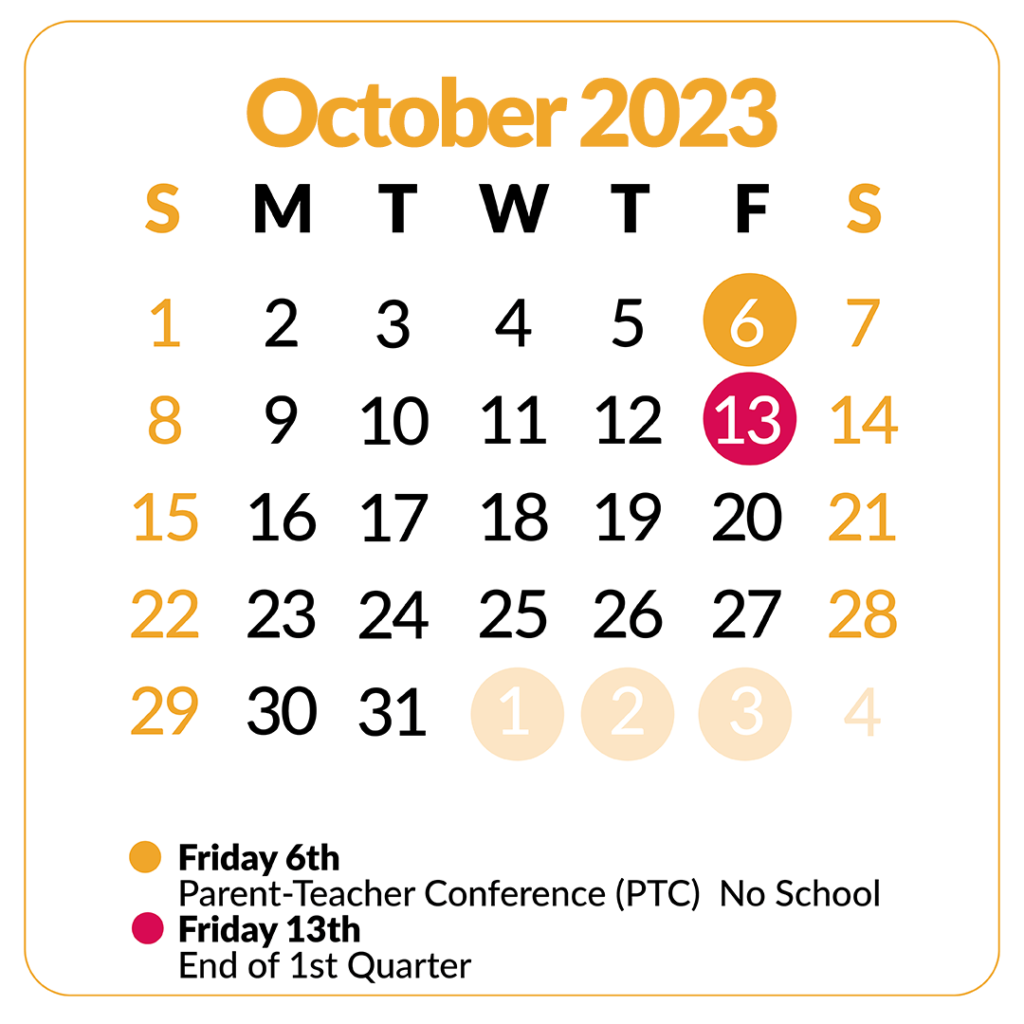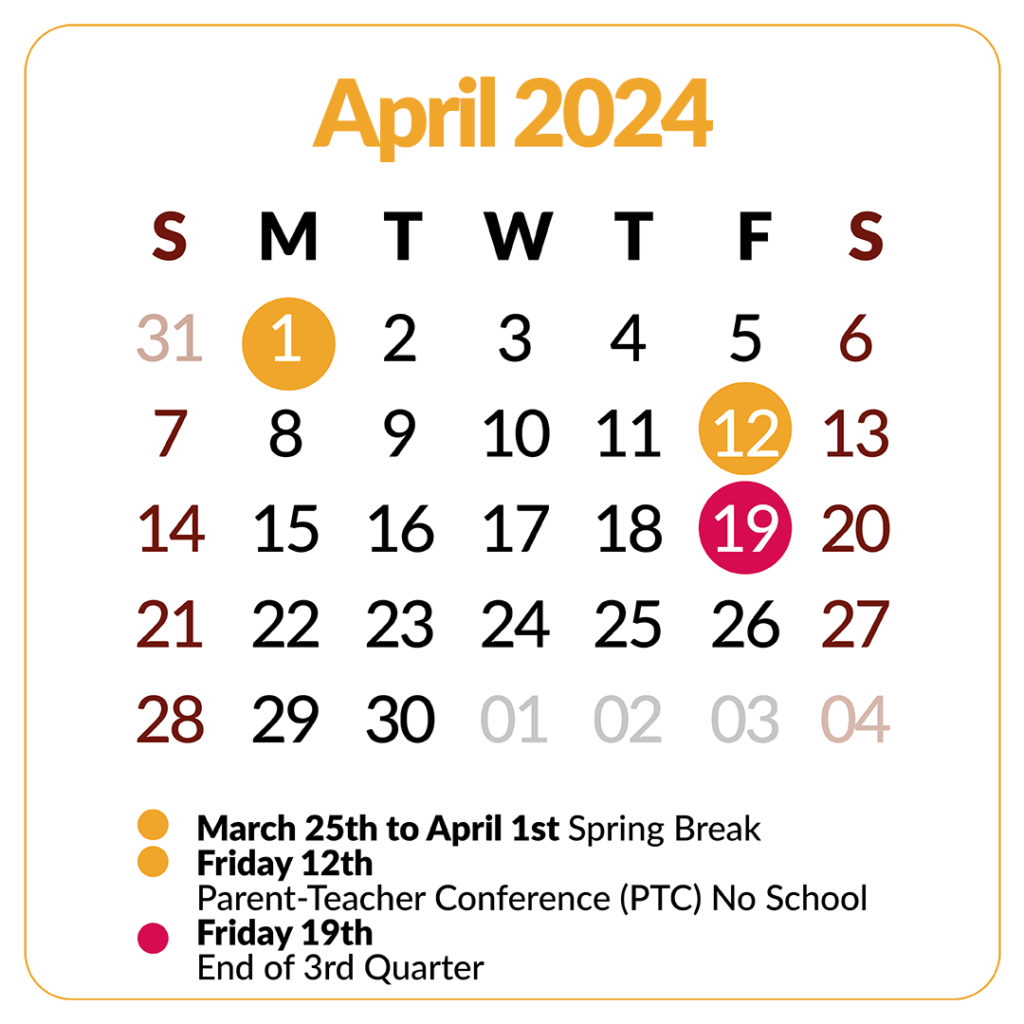SECTION 1: OUR SCHOOL
1.01 Story of United School of Panama
United School of Panama was established in response to the need for academic continuity for students graduating from our early childhood education centers. Driven by the positive feedback on the exceptional academic and developmental achievements of our pre-school graduates, we embarked on a project that embodies our teaching philosophy and shared values.
Our objective is to provide a first-class education in a modern facility featuring open spaces for sports, conveniently situated just minutes from the city center. As educators and parents, we are dedicated to being a teaching and support center for families, fostering a positive impact within the community.
As the project evolved, our team expanded, with each new member bringing valuable contributions that emphasize our inclusive, international, entrepreneurial, and professional spirit.
United School of Panama opened its doors in August 2021, offering classes for PK4, Kindergarten, and 1st through 4th grades. We plan to grow progressively, adding one grade per year until we offer a comprehensive PK4-12th grade education.
The founders of United School of Panama comprise a multidisciplinary team with international experience and proven expertise in education, construction, business administration, finance, project management, and logistics. They are deeply committed to shaping the future of education.
1.02 Mission, Vision and Golden Principles
Mission
At USP, we believe that education extends beyond textbooks to hands-on creation and application of literature. We provide a safe and welcoming environment for our community, encouraging innovation and creativity. We are dedicated to promoting literacy, critical thinking, and problem-solving skills through creative and intellectual engagement and communication.
Vision
United School of Panama will be revered as a prestigious school with distinguished preparatory curricula that will challenge young minds in a multilinguistic and diverse multicultural environment. We pledge to all USP students a commitment towards personal development through discipline, merit, respect, individual growth and teamwork.
Golden Principles
At USP we believe in fostering a well-rounded and balanced individual who embodies the traits that align with our golden principles, rooted in the shared aspects of humanity. These principles guide us in developing the best versions of ourselves personally and professionally.
A balanced person
Compassionate: Showing empathy and understanding towards others contributes to being a balanced person.
A respectful relationship builder
Camaraderie: Building camaraderie and fostering positive relationships aligns with being a respectful relationship builder.
Courage: Demonstrating courage to face challenges supports the process of building respectful relationships.
A rational problem solver
Critical thinking: Using critical thinking skills to analyze and solve problems will create rational problem solvers in the future.
Diversity: Embracing diversity and respecting differences is crucial in rational problem-solving.
A contributing citizen
Responsibility: Taking responsibility for one’s actions and contributing positively to society is a core aspect of being a contributing citizen.
An innovative creator
Leading Tomorrow: Being forward-thinking and leading with innovation will foster our future innovative creators.
A compelling communicator
Communication: Effective communication and engaging with others are essential for being a compelling communicator.
1.03 Student Pledge
UNITED SCHOOL OF PANAMA STUDENT’S PLEDGE
United Student I am.
It is my duty to
honor thy parents,
love thy brother,
and to be devoted to my school.
In all instances,
I am accountable for
the integrity that guides my spirit,
the passion that leads my heart,
the choices and actions I take.
United student I am.
Leaving no boundary uncrossed
committed to being a lifelong learner,
in the pursuit of truth, justice, and happiness
for my community and generations to come.
United for all.
All for United.
Sapere Aude.
1.04 Philosophy of Teaching and Learning
At USP we are an evolving community of life-long learners. We cultivate and nurture the lives of our students through critical thinking, innovation and purpose. We strive to provide the best environment for students to develop, learn and grow.
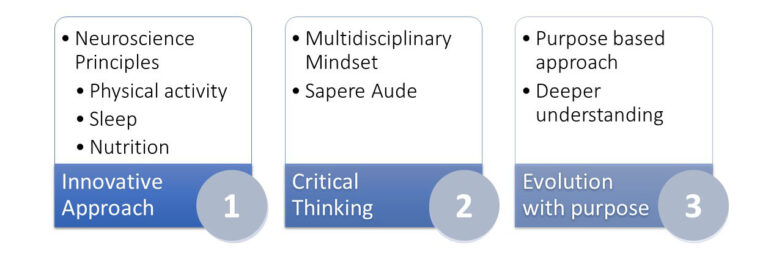
Innovative Approach
Our teaching philosophy is grounded on applying the principles of neuroscience to enhance learning. Neuroscience is a multidisciplinary science that is concerned with the study of the structure and function of the nervous system.
Critical Thinking and a Multi-Disciplinary Mindset: Sapere Aude
Critical thinking goes beyond memorization, encouraging students to connect the dots between concepts, solve problems, think creatively, and apply knowledge in new ways. Critical thinking skills—which are based on the evaluation and application of knowledge—are not only vital for success in all subject areas, but in everyday life as well. Critical thinking is developed by encouraging our students to ask the right questions, make decisions and take responsibility for its outcome, connect different ideas, incorporate different points of views, work in diverse groups.
At United School of Panama, school culture enhances the creation of meaningful opportunities by engaging and challenging every student.
Evolution with Purpose
At USP we promote a purpose-based approach to prepare students for the world they will enter into, where content areas are integrated to promote deeper understanding, while developing a lifelong love of learning in pursuit of a meaningful life. The top sought after skills for professional development are: communication, leadership and teamwork skills. USP’s approach to the traditional way of education lays in our core beliefs of customs, values, morals and how we treat each other with respect as our bottom line.
Key Philosophical Messages that make USP unique
• Deep respect for children as individuals.
• Multilevel teaching approach allows teachers to develop close and long-term relationships with their students, allowing them to know each other’s learning style well, and encourage older students to become role models, mentors, and leaders to younger students.
• Integrated curriculum is carefully structured and connects subjects within programs (e.g., history and cultural arts to maximize the opportunity for learning and builds from program to program to progress from concrete to abstract learning).
• Independence is nurtured and leads to children becoming purposeful, motivated, and confident in their own abilities.
• Critical thinking and conflict resolution are taught daily and students learn to be a part of a warm, respectful, and supportive community.
• Character development is a central focus of USP’s curriculum.
The child creates, in a very real sense, the adult that is to be, through his/her experiences, interactions, and environments.
• USP engages students to be active rather than passive with their learning. Hands-on learning is central to the curriculum in all programs.
• Teachers, students, and parents work together as a collaborative and supportive community.
• Self-expression is nurtured in all students. Students experience art, music, poetry, theater, writing, and other forms of creative arts with confidence and passion.
How does neuroscience influence education?
Education is about enhancing learning, and neuroscience research suggests that our learning outcome relies on interdisciplinary environmental habits. BDNF (Brain Derived Neurotrophic Factor) explains that physical movement enhances natural hormonal growth in synapses through D.O.S.E. (also known as Dopamine, Oxytocin, Serotonin, Endorphins). These hormones are essential in brain growth, elasticity, and cognitive development.
Advances in the field of neuroscience have increased our understanding of the mental processes involved in learning. By understanding cognitive development and how the brain grows, we understand what activities are key in how the curriculum should be structured.
Physical Activity
The principles of neuroscience indicate that a child’s brain needs motion and physical exertion to grow, as such, our curriculum includes daily physical activity as well as brain breaks for students to engage with the material and concepts that they are learning.
Sleep
At United School of Panama, we are proud of our location just 10 minutes from Panama City. Our class and extracurricular activity schedules allow families to wake up, have breakfast, and get to school within manageable time.
Nutrition
Proper nutrition is essential for normal cognition and thinking skills, a healthy diet that is low in fat and high in essential nutrients reduces the risk of memory loss, helps prevent strokes and boosts alertness. USP’s school cafeteria will offer meals for our students with all the necessary nutrients to ensure their overall health. Students will be taught the nutritional value of different foods so that they learn to choose what they eat from our lunchroom and develop healthy eating habits.
Meaning of Learning
Learning is an extraordinary journey that ignites curiosity and unleashes the power of growth within us. It is an immersive process that bridges the understanding between diverse ideas, cultures, and experiences. At USP, we believe that academic achievement is not limited to the acquisition of knowledge alone. It is equally important to instill in our students the ability to apply that knowledge in their daily lives and make thoughtful choices that positively impact themselves and the world around them.
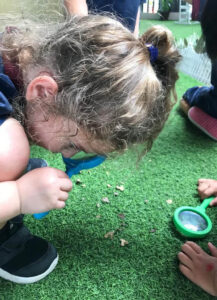
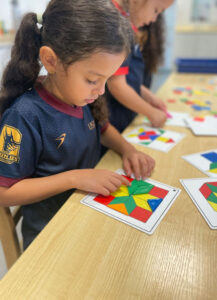
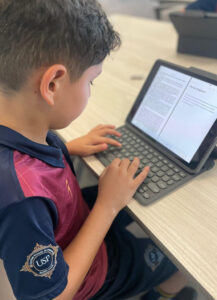
1.05 School Governance
United School of Panama adopts a two-tier corporate governance model to ensure effective management of the school’s operations. The first tier comprises a 5-member board of directors responsible for establishing the direction and vision of the school, while the second tier comprises two co-heads (Academic Director and Administrative Director) responsible for the operational management of the school.
Board of Directors
The board of directors is responsible for the strategic direction and vision of the school. The board will be composed of five members, who will serve a term of three years. The board will appoint a chairman from among its members to preside over board meetings. The board’s primary responsibilities include:
1. Approving the annual budget
2. Establishing school policies
3. Reviewing and approving major capital expenditures
4. Ensuring compliance with relevant laws and regulations
5. Monitoring school performance
The board of directors will meet at least once every quarter, and special meetings can be called by the chairman or any two board members.
These five responsibilities represent core functions that are fundamental to the School. Board members fulfill these responsibilities by working together as a governance team with the co-heads (Academic and Administrative Directors) to make decisions that will best serve all the students in the community.
1.06 School Organization and Administrative Structure
Co-Heads
The co-heads (Academic Director and Administrative Director) will be responsible for the operational management of the school. The two co-heads will work closely together and will be accountable to the board of directors. The co-heads’ primary responsibilities include:
1. Implementing the board’s policies and directives
2. Preparing and submitting an annual budget to the board for approval
3. Developing and implementing academic programs and curricula
4. Managing human resources and overseeing staff training and development
5. Overseeing the school’s facilities and infrastructure
6. Ensuring compliance with relevant laws and regulations
7. Ensuring the delivery of quality education to students
Decision-Making
Operational decision-making is separated into two departments: the Academic Department and the Administrative Department. The Academic Director is responsible for decisions related to academic programs, faculty, and curriculum. The Administrative Director is responsible for decisions related to finances, human resources, facilities, and infrastructure. Decisions that impact the whole school are reached through consensus of both directors.
Conclusion
The school governance model ensures that the school’s strategic direction and vision are established by the board of directors, while the co-heads are responsible for the operational management of the school. The separation of decision-making between the Academic Department and Administrative Department ensures effective and efficient management of the school’s resources, while consensus-based decision-making ensures that decisions that impact the whole school are made in the best interest of the school as a whole.
1.07 Campus and School Hours
The regular campus hours are 7:30 a.m. – 5:00 p.m. except on Fridays that School closes at 3:30 p.m. Classes begin at 7:50 am through 3:10 pm, except on Fridays, when classes end at 1:20 p.m.
Extracurricular activities begin from 3:30 though 4:30 p.m. Mondays – Thursdays. Other special activities may be scheduled on Fridays after 1:20 pm. Parents of students participating will be notified accordingly.
The area designated for student drop off and pick up will be supervised by designated school staff during regular drop-off and pick up times:
ECA teachers are responsible for the supervision of their students until 4:50 p.m. Parents are asked to respect this time and pick up students no later than 4:50 p.m. if a student is not picked up by 4:50 p.m., they will be sent to the administrative office to wait until their parents arrive.


